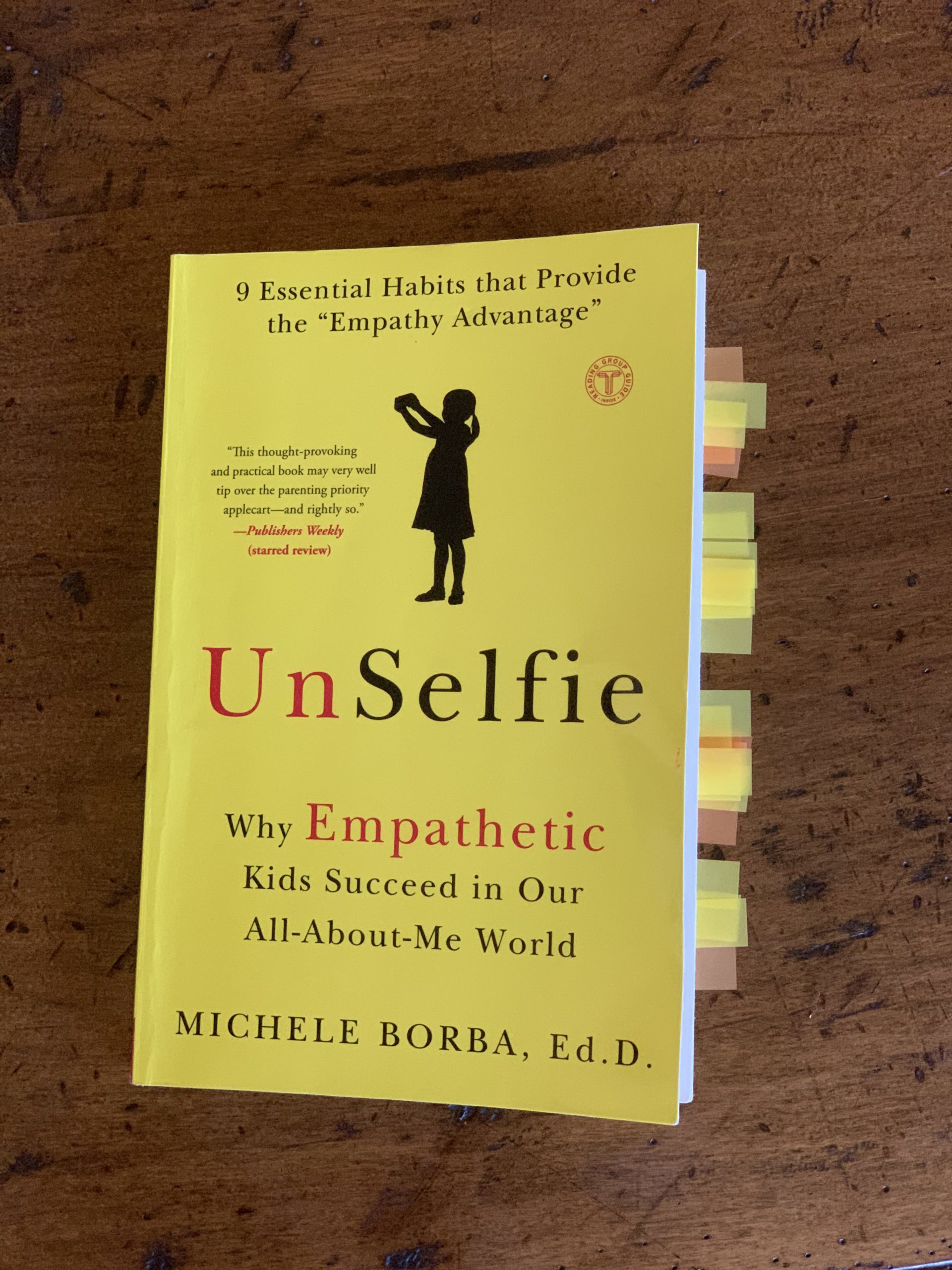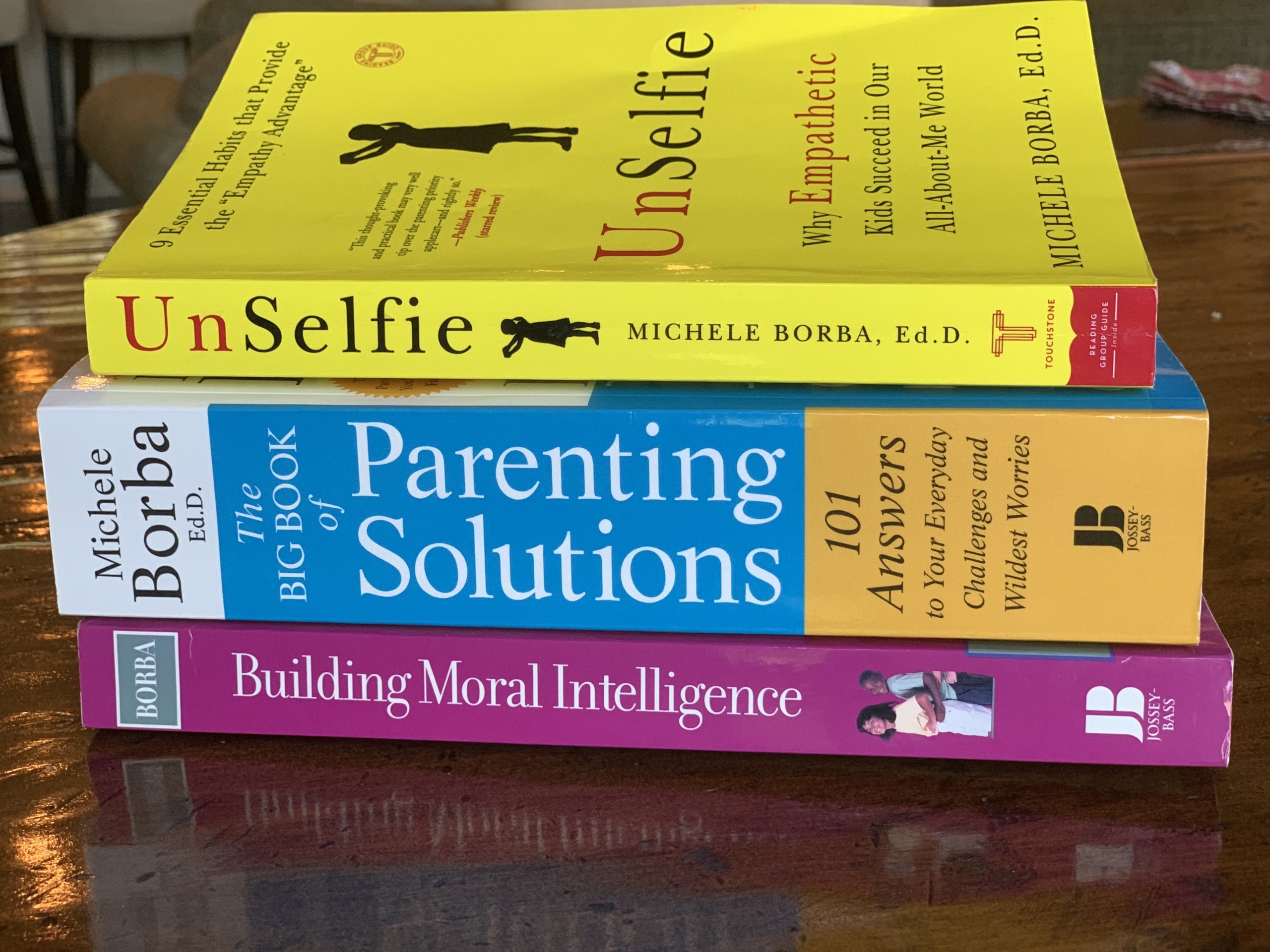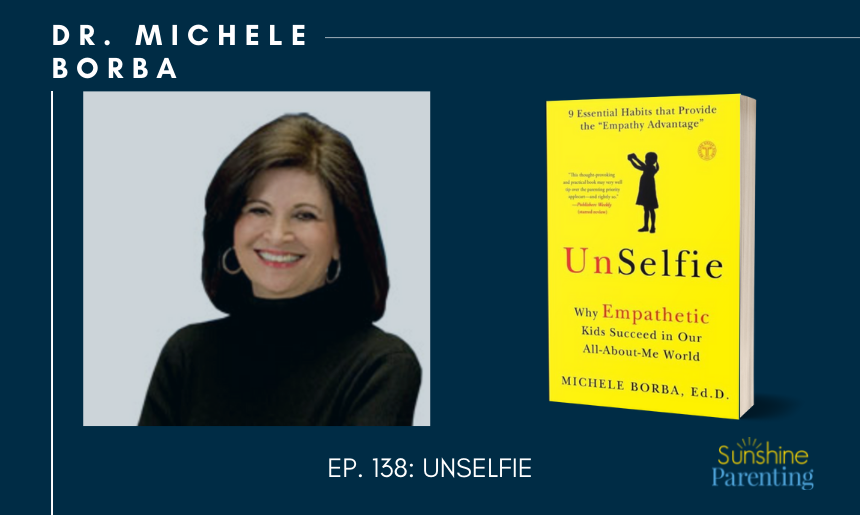
Show notes & links available here.
Subscribe for resources and ideas for happier, more connected families.
In this episode, Audrey’s guest is Dr. Michele Borba, an educational psychologist, parenting expert, and author of 24 books. Her most recent book is Unselfie: Why Empathetic Kids Succeed in Our All-About-Me World.
The aim of Dr. Borba’s work is to strengthen children’s empathy and resilience and break the cycle of youth violence. In this book, she shares her experience meeting kids from all over the world and discovering the unprecedented global epidemic of mental health disorders.
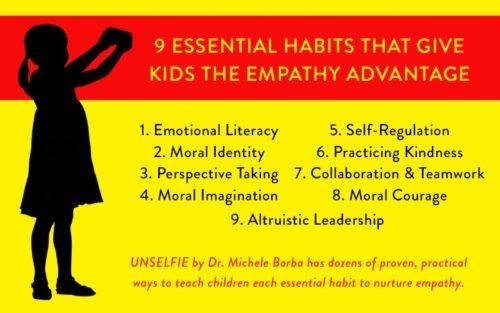
Big Ideas
- 1 in 3 kids has overwhelming stress levels. As a generation, kids today are lonelier, more risk-averse, and lacking in curiosity. Dr. Borba began to examine the causes and found the lower the income of the kid, the happier the child.
- Studies found that in the U.S., teens are nosediving in empathy. There was a 40% drop in 30 years, while narcissism and self-absorption were up 58%. Kids today need to develop empathy.
- Empathy can be cultivated in our youth and doing so will dramatically enhance their success, happiness, and well-being. Here are some ideas:
- The Two Kind Rule: say or do at least two kind things every day.
- Check-in with your kids and ask, “What was something kind you did today?”
- Model kindness and caring.
- Talk about your values and moral identity.
- Show and demonstrate kindness in small and simple ways.
9 Essential Habits that Give Kids the Empathy Advantage:
- Emotional Literacy: Be able to read someone’s feelings, to connect with others, talk about feelings.
- Moral Identity: Feel inside that caring matters and your values inform good choices.
- Perspective Taking: Feel another person’s point of view.
- Moral Imagination: Share uplifting literature, film, news, and images as a source of inspiration.
- Self-Regulation: One simple tip is to teach “Belly Breathing.”
- Practicing Kindness:Look for simple ways for your child to see you extend kindness.
- Collaboration & Teamwork: Encourage your child to have contact with individuals of different races, cultures, ages, genders, abilities, and beliefs.
- Moral Courage: Promote moral courage and teaching children situational awareness to embolden them to speak out, step in, and help others.
- Altruistic Leadership: Don’t think about yourself, think about what you can do for others.
Four questions to consider:
1. Which empathy habits are you helping your children acquire?
2. Which empathy habits might you be overlooking?
3. Which empathy habits is your school addressing or may be overlooking?
4. Which habit are you interested in nurturing in your children or students?
Quotes
Michele: “Empathy is teachable. Our kids are hard-wired to care, but we’ve got to nurture it and the culture is removing it.”

Michele: “Parenting right now is all about the G.P.A. and the rank and score. So it puts empathy down on a lower level. All we need to do is flip it around because we’ll raise more successful, happier kids who are more prepared for life if we do.”
Audrey: “When you are not feeling good, the best thing you can do is serve other people. Empathy gets you outside of yourself.”
Michele: “When we look at kids and who their role models are, 20 – 30 years ago it was, I want to be a helper, a doctor, a teacher, a firefighter. Now? Somebody who is rich and famous.”
Michele: “If we flip our parenting and weave in how we cultivate empathy, and it’s doable. It’s not another teacher, not another tutor or worksheet–it’s simple little things that we can do on a day-to-day basis that will make a major difference in our children’s lives.”
Michele: “You can’t have empathy unless you can read somebody else’s feelings. That’s emotional literacy. Our kids have been looking down, not up. They’ve been disconnected. So right now, just start talking feelings more because that’s the gateway to empathy.”

Michele: “Kids need to feel inside their heart and soul that I’m a caring person and that matters. So talk about that in your home. ‘That’s what we stand for, those are our values.’ Because your kid will be likely to step in and do the right thing.”
Michele: “If we keep asking those simple little things, and weave them in, what we start doing is stretching our kids to think ‘WE’ not ‘ME’ and that’s what helps our kids to be able to fight the stress.”
Michele: “When stress builds, empathy goes down and burnout comes up. We’re now looking at a population of burned out, overwhelmed individuals.”
Michele: “My challenge to each kid right now is to think of one person who’s struggling. It could be a friend, somebody you may not be able to connect with face-to-face, but what’s one simple little thing you can do to reach out and help that person? It will not only get your stress level going down, it’ll help that person. That’s a win-win.”
Audrey: “During a time of high stress and high anxiety, the best thing we can do is stop thinking so much about our own stress and our own worry and instead think about, ‘What can I do?’ Little acts of kindness.”
Michele: “Parents, don’t try to do it all. You’ll be overwhelmed and your kids won’t be so happy.”
Michele: “Yes, it’s important that you get the grade and you study, but it’s also important to have balance. Because what you really want is a child who has two things going for them (heart and mind.) That’s the kid who’s going to be able to handle life well.”
Audrey: “Parents, remember, talk about it. If it’s important to you, make sure your kids know that it is important to you and that you value kindness and empathy.”
Audrey: “Our identity is so much more powerful than anything else. So if we want our kids, for example, to be healthy, they need to identify themselves as a healthy person who doesn’t take things into their body that are bad for them.”
Audrey: “A lot of communication to kids is, ‘Don’t do this, don’t do that.’ It’s so much more powerful to say, ‘We are kind. We’re going to practice kindness.'”
Michele: “Words really do matter. Praise can diminish or increase empathy. One of the simplest things to do is catch your kid with any kind of character trait and use the word ‘because’ in your praise: ‘That was being kind because you held the door open for grandma. Did you see how happy she was?'”
Michele: “When kids see the impact of a gesture, they’re more likely to repeat the gesture until they become that kindhearted kid. Just tuning up our praise the right way can make a difference.”
Audrey: “Let’s take this time to think more about our family’s values and use it as a kind of reset…There are simple things we can do right now to come out of this better, kinder people.”
Michele: “All of these habits, you weave them in. It’s kind of like this little scaffolding trajectory. You start when they’re little and you keep on going even when they’re out of the house. And what you end up with is habit nine–the altruistic kid who wants to make a difference in the world. That’s what our world needs right now. The kid who thinks ‘WE,’ because we get through stuff together, not alone.”
Audrey: “It’s never too late to start this–or too early–and nd it will lift everybody up. We need more people bringing positive changes to the world. What this world needs is people who care and people who are looking out for each other.”
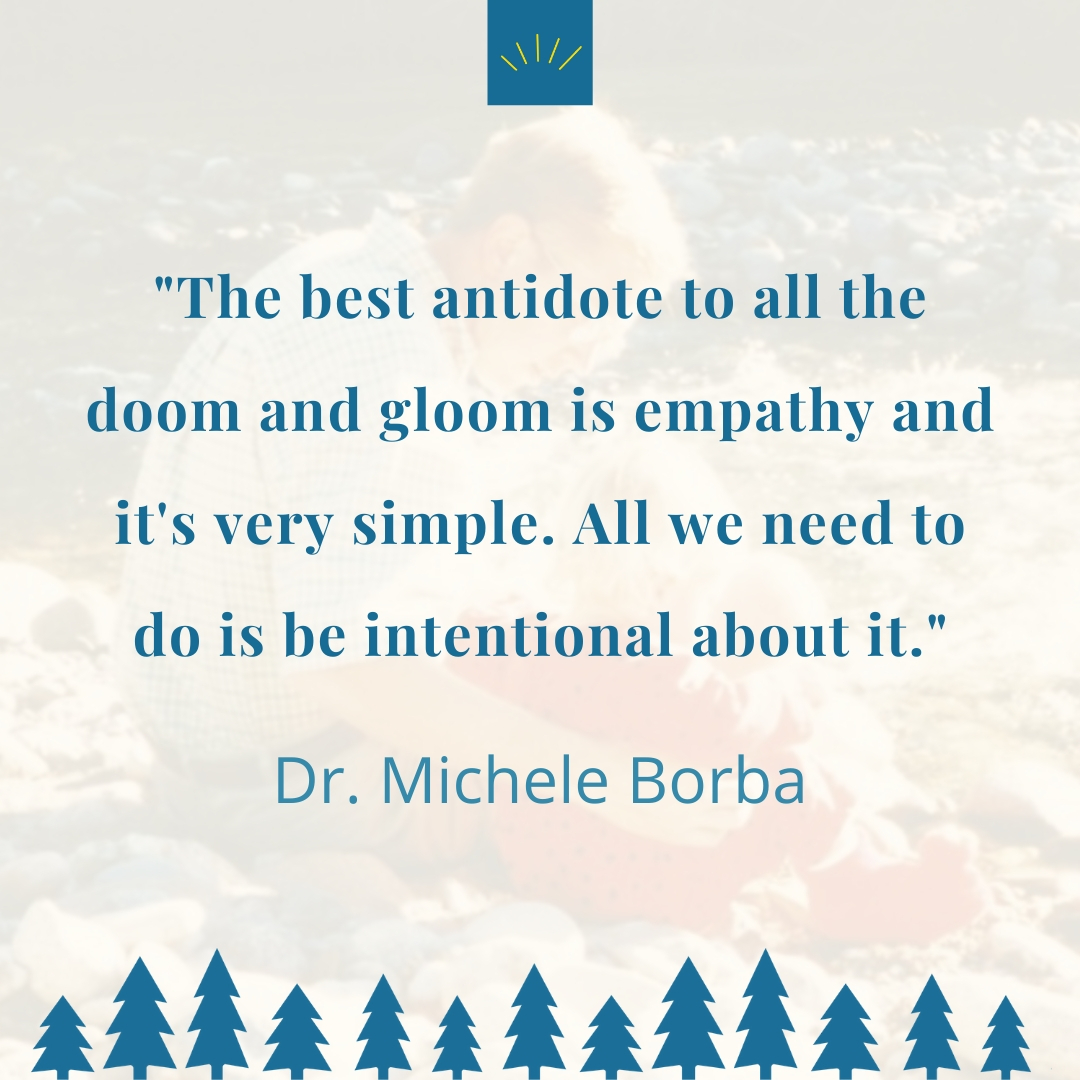
Resources
Empathy Is a Verb: My TEDx Talk to Start An UnSelfie Revolution
The Altruistic Personality by Samuel P. Oliner
Related
5 Ways to Encourage Empathy in Kids
Ep. 124: Promoting Mental Health with Dr. Jess Shatkin
Ep. 75: Begin with the (Parenting) End in Mind
